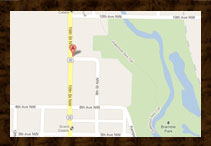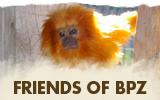Possible Outreach Animals
Living
| 1. | Pancake tortoises | reptile |
| 2. | Madagascar hissing cockroaches | insect |
| 3. | Striped skunk | mammal |
| 4. | Black-tailed prairie dog* | mammal |
| 5. | Ball pythons (3-4 ft) | reptile |
| 6. | Kenyan sand boas (1-2 ft) | reptile |
| 7. | Uromastyx | reptile |
| 8. | Western hognose snake | reptile |
| 9. | Box turtles | reptile |
| 10. | Yellow-naped Amazon parrot** | bird |
| 11. | Crested geckos | reptile |
| 12. | White-crested cockatoo* | bird |
| 13. | Chinchillas | mammal |
| 14. | African hedgehog | mammal |
| 15. | Corn snakes (24-36”) | reptile |
| 16. | Smooth soft shell turtle | reptile |
| 17. | Leopard frogs | amphibian |
| 18. | Colombian boa (18″-4′) | reptile |
| 19. | Red-eared sliders | reptile |
| 20. | Southern 3-banded armadillos | mammal |
| 21. | European ferret | mammal |
| 22. | Degus | mammal |
| 23. | Bearded dragons | reptile |
| 24. | Leopard geckos | reptile |
Non-Living
Biofacts such as skulls, skins, feathers, eggs, horns, antlers, mounted animals, etc.
Hint: Number of animals chosen depends on length of program. For a 1-hour program the zoo educator usually shows 5-6 animals depending on the size of the group.
*Indicates animals that cannot be touched by the spectators
**Indicates animals that are not handled by the presenter or spectators. They are shown in a clear container or on a perch.









